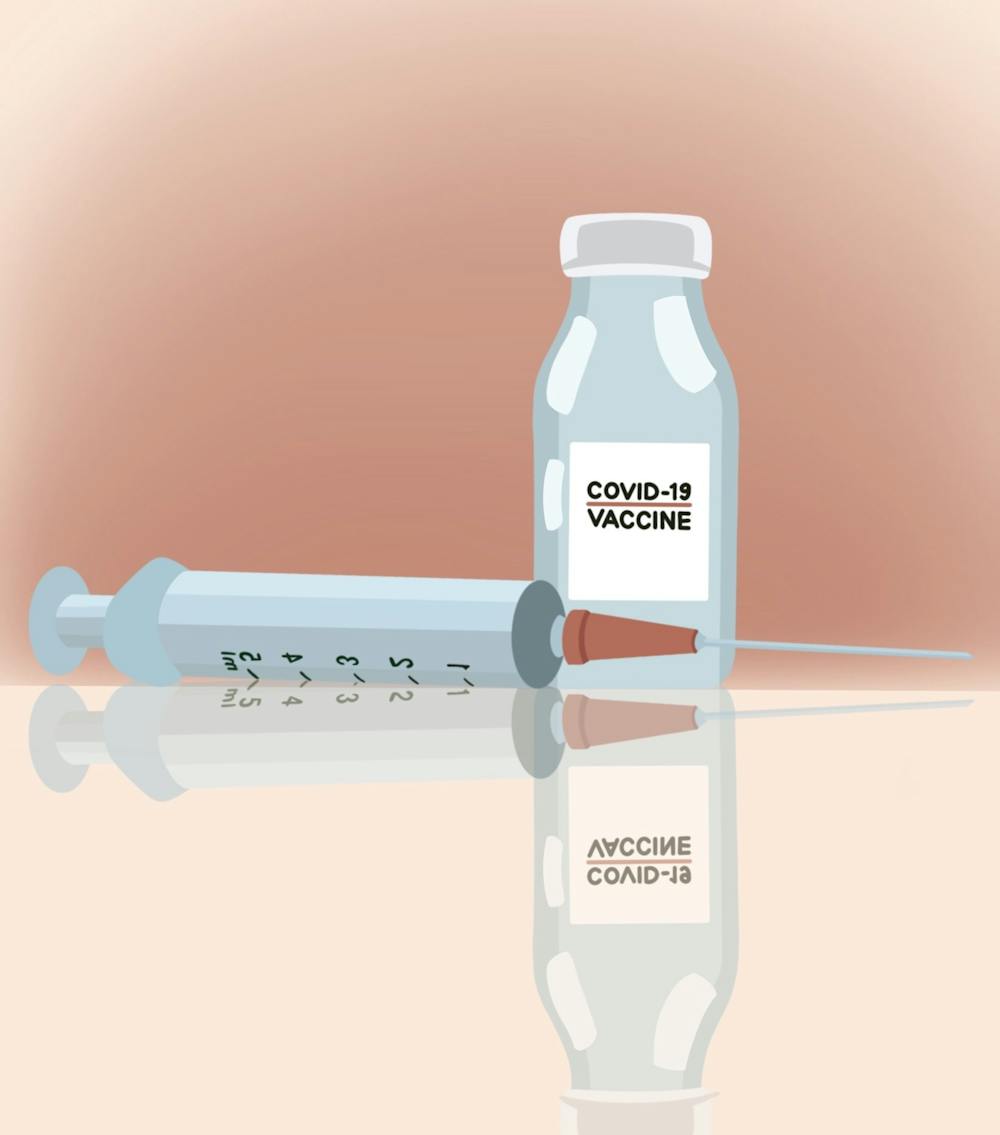Lea en español // 中文版请点击此处
U.Va. Health announced in a tweet Jan. 26 that some non-medical employees and students from the University had signed up to get vaccinated for COVID-19 despite being ineligible to receive the vaccine from the University. Currently, only U.Va. Health employees are eligible to get vaccinated at U.Va. Health.
“To any U.Va. students, faculty and staff who were not directly notified that you’re eligible for the COVID-19 vaccine: Please cancel your appointments,” the tweet said. “If not, you won’t be allowed to receive the vaccine when you arrive.”
To speed up vaccination distribution, U.Va. Health uses an existing appointment scheduling system called Vaxtrax. The system can be accessed by anyone with a University login and was not built to determine appointment eligibility. As a result, misinformation circulated among students, faculty and staff who were able to book appointments despite not being eligible.
“Academic students were repeatedly informed that they were not eligible for vaccination during this phase,” U.Va. Health tweeted in response to a comment under their tweet. “Nonetheless, we have learned from social media posts that some U.Va. students ignored those restrictions and scheduled appointments anyway. They also shared registration links and invited their friends to sign up.”
U.Va. Health is administering vaccines to U.Va. Health employees under the Virginia Department of Health’s Phase 1a of vaccine rollout, which allows for the vaccination of healthcare workers. Emails were sent to eligible employees informing them that they could sign up — these individuals are the only ones able to receive a vaccine through the U.Va. scheduling system.
According to University Spokesperson Wes Hester, links to the vaccine scheduling system incorrectly made their way to ineligible individuals as part of the process of U.Va. Health helping to vaccinate members of Phase 1a at the request of the Virginia Department of Health and the Blue Ridge Health District. The BRHD controls vaccine priorities and deployment.
“With the COVID vaccination process being new and with information changing rapidly, it's understandable that there has been confusion on who is eligible to be vaccinated and when,” University Spokesperson Wes Hester said in an email to The Cavalier Daily.
Eric Swensen, U.Va. Health public information officer, emphasized in an email to The Cavalier Daily that vaccine-related communications state only U.Va. Health employees and individuals from select partnerships or programs are eligible to receive the vaccine.
Prior to learning that ineligible people had scheduled appointments, U.Va. Health followed the standard practice for verifying identity at medical clinics — asking for name and date of birth. It has now added the extra step of checking ID badges once the issue was realized. If someone does not have proper identification, they will be turned away.
According to Swensen, U.Va. Health has not tracked how many vaccine-ineligible individuals were turned away.
Vaccine distribution at the BRHD has expanded to include individuals in Phase 1b — essential workers, individuals over the age of 65 and individuals aged 16-64 with high risk medical conditions. Individuals who are eligible under Phase 1a or Phase 1b can fill out BRHD surveys to get on the vaccine waitlist. These surveys do not directly schedule an appointment, but individuals who fill out the survey will be contacted when they are able to get vaccinated.
U.Va. Health is collaborating with the BRHD in several ways to assist in vaccine distribution.
At the request of the health district, U.Va. Health is administering vaccines to members of the community over the age of 75. These individuals, however, have to make their appointments through the BRHD rather than U.Va. Health. Some individuals who complete the survey on the BRHD site may be redirected to the Vaxtrax system, but this will only happen if they are eligible to receive the vaccine.
U.Va. Health is also providing vaccinators to the BRHD’s community vaccination site on Hydraulic Road. According to Swensen, as of Wednesday night, more than 4,300 community members over the age of 75 have received their first dose of the COVID-19 vaccine through the health system’s partnership with the BRHD — totaling over 23,000 vaccines, delivering up to 1,400 vaccines per day.
A second community vaccination site at Seminole Squareadministered its first vaccinations Sunday. Phase 1a frontline workers and Phase 1b essential workers were part of the first group vaccinated Sunday.
183 essential workers under Phase 1b were vaccinated on Sunday at the Seminole Square vaccination site. The goal was to vaccinate around 500 people over the course of seven hours, but fewer individuals than anticipated showed up due to the inclement weather.
The two community vaccination sites are staffed by both U.Va. Health and BRHD employees and provide vaccinations by appointment only. JAUNT, Inc. and Charlottesville Area Transit will provide free transportation to and from vaccination appointments.







